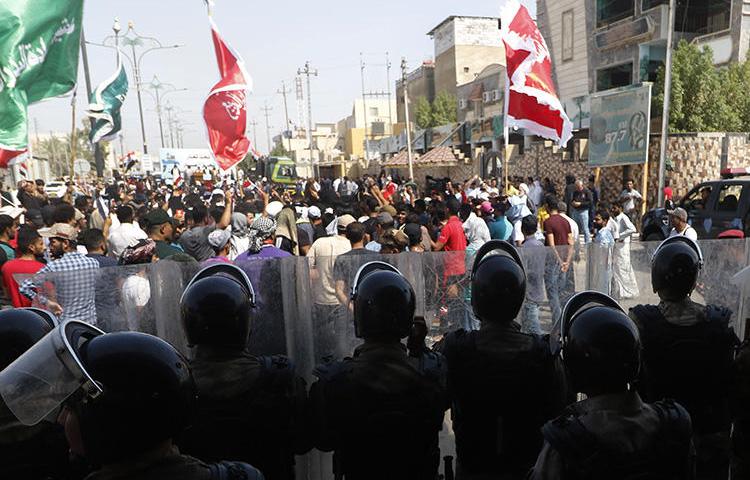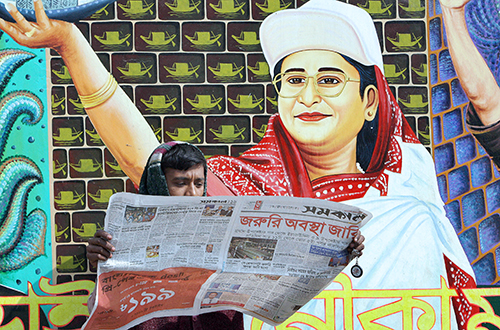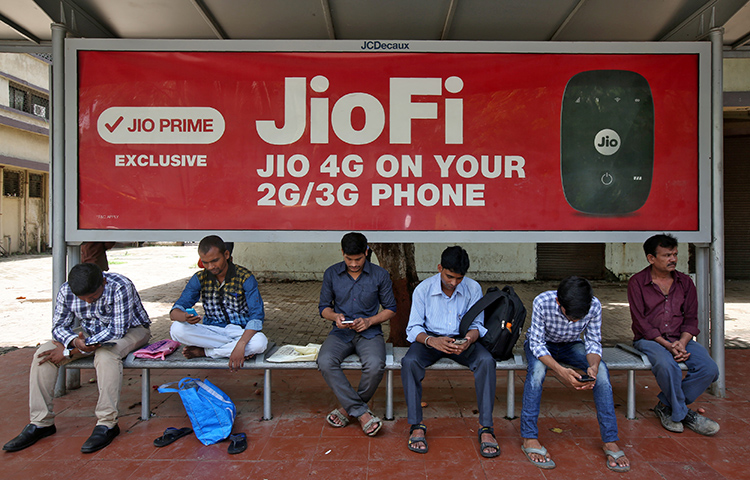
Iraqi authorities shut down internet, detain and assault journalists amid protests
Between July 14 and September 6, 2018, at least seven Iraqi journalists were assaulted or detained while covering protests over government corruption and the lack of basic services in several cities across Iraq, and the offices of two local media outlets were set on fire, according to news reports, the journalists’ employers, the local press…
Right Is Might
We have the laws and institutions to fight attempts at information control By David Kaye Yevgeny Zamyatin’s strikingly original 1920s Russian novel We gets read far less than its canonical English-language descendants, Brave New World and 1984. Yet George Orwell knew of and clearly drew from Zamyatin’s book in creating 1984. The homage-paying is obvious:…
From Fledgling to Failed
Even as the country collapses, South Sudan’s government will brook no criticism By Jacey Fortin JUBA, South Sudan – The shooting began around 5:15 on a Friday afternoon. Dozens of journalists had gathered in the pressroom at the Presidential Palace–a walled compound also known as “J1”–in the capital city. Following a few days of rising…

Mission Journal: Bangladeshi press reined in as Hasina exerts authority
Matiur Rahman Chowdhury has been the host of “Frontline,” a popular Bangla-language news show, for five years. Aired live three times a week, the show gained notoriety for bringing politicians, members of civil society, and journalists together to discuss current affairs. Chowdhury distinguished himself from many of his counterparts with his soft-spoken but firm demeanor…
Hassan Rouhani and the Hope for More Freedom in Iran
The new president may have limited power to enact change, but the practical needs for communications technology may work in favor of a freer press. By D. Parvaz In his early months in office, Iranian President Hassan Rouhani, pictured in Tehran June 17, 2013, focused primarily on foreign affairs. (Reuters/Fars News/Majid Hagdost)
Iran Briefing: May 2000
New York, May 5, 2000 —When Iran’s top cleric, Ayatollah Ali Khamenei, launched a scathing tirade against the country’s pro-reform newspapers on April 20, journalists braced for the inevitable showdown. On previous occasions when the supreme leader had excoriated the press, the conservative-dominated judiciary responded with remarkable swiftness, shutting down newspapers and hauling journalists to…
CPJ Update:Censorship in Yugoslavia
March 31, 1999 — A systematic campaign of state censorship implemented since the onset of the NATO bombings has nearly silenced Yugoslavia’s independent media, previously among the most vocal opponents of President Slobodan Milosevic. Because of the fear of reprisal, many of CPJ’s sources in the Yugoslav media have requested that neither their names nor…
